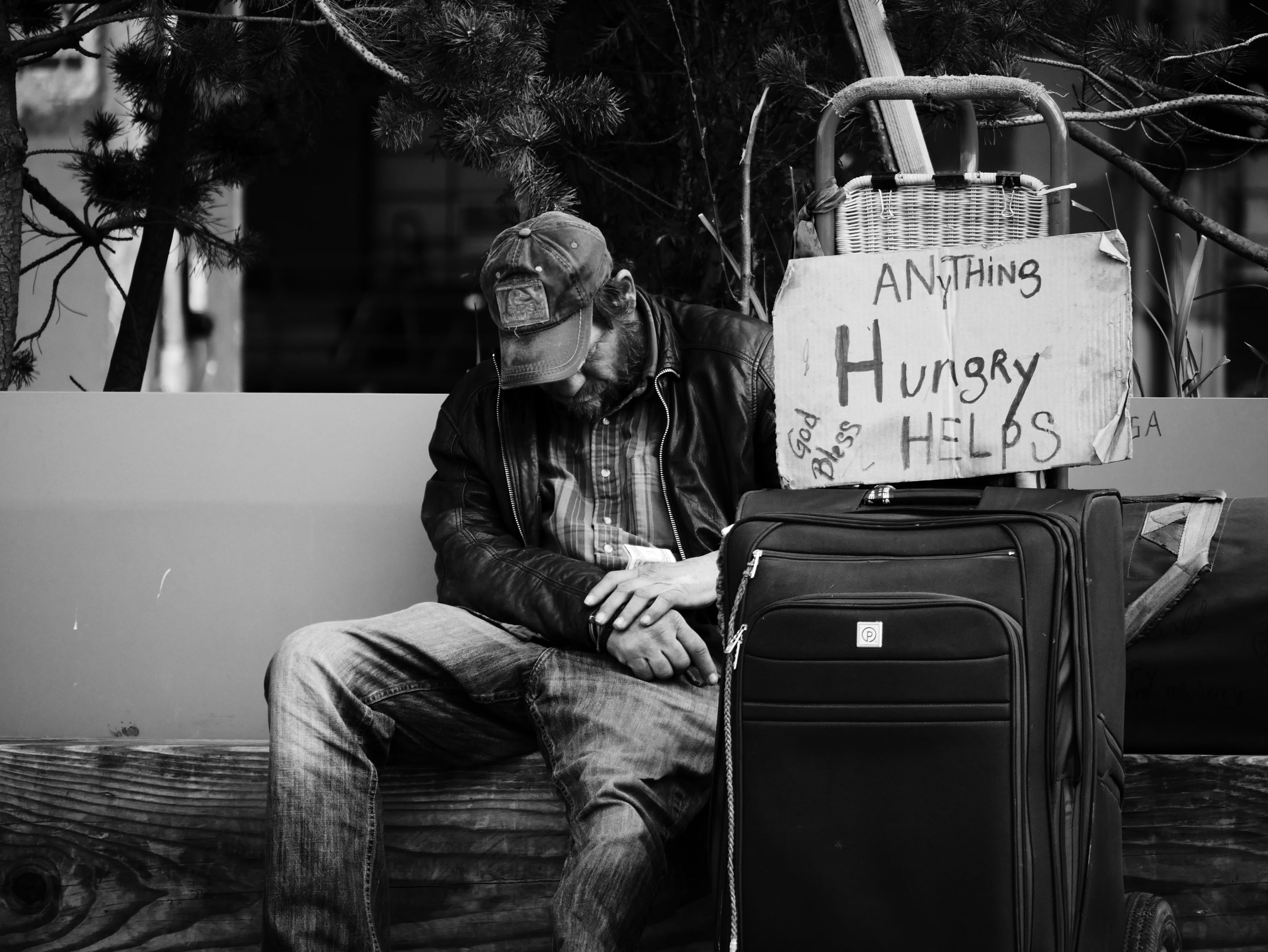SJC Strikes Down State Anti-Panhandling Law as Unconstitutional
In a landmark decision published last week, Massachusetts Coalition for the Homeless v. Fall River, the Massachusetts Supreme Judicial Court (SJC) struck down G.L.c. 85, § 17A (often referred to as the anti-panhandling law) as an unconstitutional restriction on protected speech. This decision was hailed as a victory by community organizers and people who are houseless, who have long criticized the law for effectively criminalizing houselessness and poverty.
Section 17A imposed criminal penalties for any person who “signals a moving vehicle on any public way or causes the stopping of a vehicle thereon, or accosts any occupant of a vehicle … for the purpose of soliciting any alms, contribution or subscription or of selling any merchandise.” (emphasis added). However, the law permitted the same conduct for other purposes, like selling admissions tickets and newspapers. The law also explicitly exempted from regulation this same conduct when performed on behalf of a non-profit organization with a police permit. The law imposed a $50 fine for violators.
Plaintiffs John Correira and Joseph Treeful are both houseless and members of the Massachusetts Coalition for the Homeless, an organization that advocates for housing justice and provides direct services and assistance to people experiencing houselessness. Like many people who are houseless, Mr. Correira and Mr. Treeful sometimes stand on public streets and ask motorists and passersby for donations in order to survive. Between 2018 and 2019, the Fall River Police Department charged the two men with more than forty violations of Section 17A. Both Mr. Correira and Mr. Treeful have previously been incarcerated as a result of these charges.
The plaintiffs brought this action to challenge the constitutionality of Section 17A, arguing that the law was an unconstitutional violation of their right to free speech under both the state and federal constitutions. The SJC agreed with the plaintiffs and struck down the law in its entirety as a violation of the First Amendment of the U.S. Constitution and Article 16 of the Massachusetts Declaration of Rights, both of which protect freedom of speech.
First Amendment Analysis
The SJC first evaluated the nature and location of the underlying regulated conduct: soliciting donations on public streets. The Court found it to be well-established under existing SJC and First Circuit case law that soliciting donations is “expressive activity,” and therefore protected by the First Amendment. The Court also found it to be “well-settled” that the State’s public streets are traditional public forums under the First Amendment. Under First Amendment jurisprudence, traditional public forums (like public parks and streets) are places that have been traditionally open to public speech and debate where speakers enjoy the strongest free speech protections. The SJC also held it was “indisputable” that Section 17A is a content-based regulation—meaning it treats speech differently based on the content of the speech—and as such, is subject to strict scrutiny review—the most stringent level of judicial review.
When a court applies strict scrutiny review, the state must prove that the law in question furthers a compelling state interest, and is narrowly tailored to achieve that interest. The Court found that Section 17A furthered the State’s compelling interest in “protecting public safety on … public ways.” The Court then considered whether the statute was narrowly tailored, meaning that the legislature had chosen the least restrictive means to advance the state’s compelling interest. The SJC agreed with the plaintiffs that Section 17A was not narrowly tailored because the statute was both underinclusive (providing exemptions for certain conduct that poses the same threat to public safety and would otherwise be criminalized under the law) and overinclusive (broadly imposing restrictions on expressive conduct in traditional public forums that were not necessary to advance the state’s interest in promoting public safety).
Underinclusive
The Court found Section 17A to be underinclusive because the law allowed conduct that poses the same public safety threat as the conduct it prohibited. Under the statute, it is legal to stop or accost motorists to gather signatures on a petition, flag down a taxi or sell newspapers. In fact, the statute explicitly allowed people to stop or accost cars to solicit donations to nonprofits but prohibited those same actions if the person was soliciting donations on their own behalf. Because the illegal conduct posed “no greater threat to traffic safety than the same conduct for other nonprohibited or exempted purposes,” the SJC concluded that the statute was not sufficiently narrowly tailored because it did not prohibit all relevant activities that risked public safety on public streets.
Overinclusive
The Court also found Section 17A to be overinclusive as a means of furthering the state’s interest in promoting public safety on public ways. The SJC cited to the fact that the statute applies to all streets, regardless of whether the plaintiffs’ actions would pose a safety risk on a particular street. Additionally, as the plaintiffs asserted, the law prohibited numerous actions regardless of whether they posed any risk to public safety. For example, as the SJC noted, “merely sitting by the side of the road holding a sign that states ‘I am homeless, please help’ could trigger criminal prosecution under the statute.” The Court concluded that the law was much broader than necessary to promote traffic safety.
Conclusion
The SJC declared Section 17A facially invalid and struck the statute down in its entirety. However, the Court explicitly left the door open for the legislature to implement a replacement statute, so long as that statute comports with the requirements of the First Amendment and Article 16. Section 17A was one of many laws, both federally and at the state level, that criminalize activities engaged in by people living in poverty in order to survive. This decision, decriminalizing an activity engaged in by people experiencing houselessness that is often necessary for their survival, will provide some relief for people like Mr. Correira and Mr. Treeful.
 Boston Lawyer Blog
Boston Lawyer Blog







